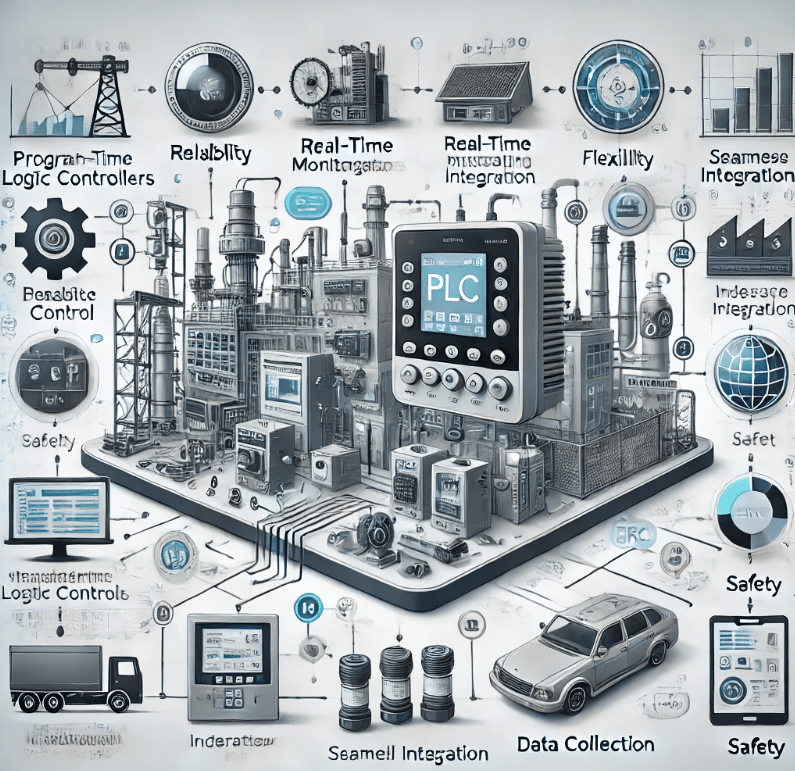Importance in Industrial Automation

Programmable Logic Controllers (PLCs) have become indispensable in the world of industrial automation. Their impact on modern manufacturing and processing systems is profound, and here’s why they are so crucial:
Reliability and Robustness
PLCs are engineered to thrive in tough industrial environments. They can handle extreme temperatures, vibrations, and electrical interference without skipping a beat. This reliability means fewer breakdowns and more consistent performance, which is vital for keeping operations running smoothly and minimizing downtime.
Flexibility and Adaptability
One of the standout features of PLCs is their flexibility. They can be easily programmed and reprogrammed to adapt to new processes or changes in existing ones. Whether you’re tweaking a production line or rolling out a new process, PLCs can be adjusted to meet evolving needs. They’re also scalable, making them suitable for everything from small setups to large-scale operations.
Advanced Control and Monitoring
PLCs are designed to offer precise control over industrial processes. They manage inputs and outputs from sensors and actuators, allowing for real-time monitoring and control. This capability helps improve efficiency, enhance product quality, and ensure safety. Operators can also use PLCs to implement complex control strategies that optimize production.
Seamless Integration
Modern PLCs are built to integrate smoothly with other systems like Human-Machine Interfaces (HMIs), SCADA systems, and Enterprise Resource Planning (ERP) systems. This integration ensures that all parts of the production system work together cohesively, enabling better data flow and more informed decision-making.
Reduced Wiring and Maintenance
Compared to traditional relay-based systems, PLCs drastically cut down on the amount of wiring needed. This simplifies both installation and maintenance, reduces the chances of wiring errors, and lowers overall costs. Additionally, PLCs come with diagnostic tools that make it easier to troubleshoot and maintain the system.
Programmability and Customization
PLCs offer a high level of programmability, allowing them to be customized for specific applications. You can write programs in various languages such as Ladder Logic or Structured Text to control complex processes and make decisions based on real-time data. This customization ensures that the PLCs meet the precise needs of the operation.
Data Collection and Analysis
PLCs excel at collecting and processing data from across the production floor. This data can be analyzed to monitor trends, improve processes, and make informed decisions. By leveraging historical data, businesses can continuously refine their operations and boost efficiency.
Safety and Compliance
Safety is a top priority in industrial environments, and PLCs play a crucial role in maintaining it. They can be programmed with safety protocols and emergency stop functions to protect both machinery and personnel. Furthermore, PLCs help ensure compliance with industry standards and regulations, avoiding potential legal and financial issues.
Cost Efficiency
While the initial cost of implementing PLC systems might be significant, the long-term savings are substantial. PLCs help reduce operational costs through increased efficiency, lower maintenance needs, and decreased downtime. Their adaptability and long lifespan also contribute to their overall cost-effectiveness.
